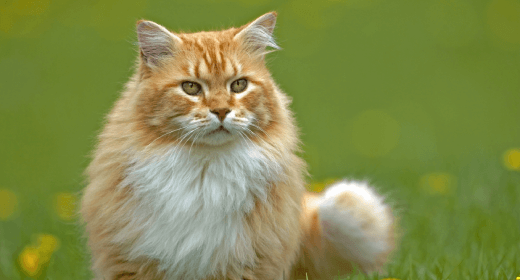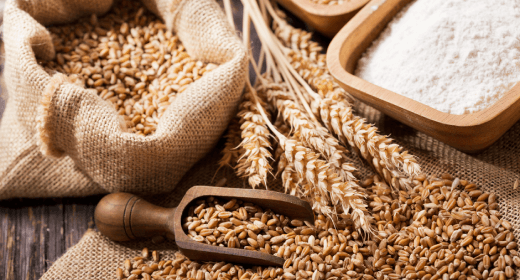

Nutrients such as protein, fat, vitamins, and minerals are important players in the skin and coat health of dogs and cats. To understand their role, it is necessary to first understand skin and hair.
The purpose of skin and hair is to block things (such as water or heat) from leaving, or things (such as viruses and bacteria) from entering the body.
The hair coat is composed almost entirely of protein. If an animal's diet doesn't contain adequate protein quantity and quality, hair may fall out, or become dry, weak, and brittle.
Skin is made up of squamous cells, which are flat cells tightly packed together. These cells have tough membranes that are composed of proteins and fats. Without proper amounts of these nutrients, cell membranes weaken, allowing water to escape and bacteria and viruses to enter more easily.
Proteins are found in both animal-based and plant-based ingredients. Animal-based proteins contain all the essential amino acids cats need, whereas plant-based proteins may contain only some essential amino acids. Cats need animal-based proteins to achieve optimal health.
Fats also can be found in both animal-based and plant-based ingredients, and they are incorporated into skin cells as fatty acids. There are two essential fatty acids for skin and coat health. Linoleic acid maintains skin and coat condition in dogs and cats. Without enough linoleic acid cats may experience dull, dry coat, hair loss, greasy skin and increased susceptibility to skin inflammation. Cats also require arachidonic acid for normal skin and coat health.
Both of these essential fatty acids are omega-6 fatty acids and are found in animal tissues such as chicken fat. Linoleic acid is also found in some vegetable oils, such as corn and soybean oils. Most commercial cat diets contain more than adequate amounts of omega-6 fatty acids.
Because these fatty acids can be converted to compounds that increase susceptibility to skin inflammation, it is important to balance the amount of omega-6 fatty acids in the diet with omega-3 fatty acids, which do not reduce susceptibility to inflammation.
Omega-3 fatty acids are found in oils from fish and some plants (canola and flax).
IAMS™ research has found that combining fat sources in the diet at a ratio of five to 10 omega-6 fatty acids to one omega-3 fatty acid results in excellent skin and coat health.
Vitamins and minerals are essential for the development of healthy skin and hair coat. The best way to provide these nutrients is through a complete and balanced diet containing appropriate amounts of essential vitamins and minerals rather than through supplements.
| Vitamin or Mineral | Important for Skin and Coat Health |
|---|---|
| Vitamin A | Necessary for growth and repair of skin |
| Vitamin E | Protects skin cells from oxidant damage |
| Biotin | Aids in the utilization of protein |
| Riboflavin (B2) | Necessary for fat and protein metabolism |
| Zinc | Necessary for fat and protein metabolism |
| Copper | Involved in tissue, pigment, and protein synthesis |
Diet is often believed to be a factor when changes in skin and coat condition are noticed. The most common causes of these changes, however, are season and life stage.
As cold weather approaches, most dogs and cats grow a thick coat to help keep heat in and cold air out. As the weather begins to warm up, they shed the thick, heavy coat.
Most kittens are born with soft, fuzzy hair, but as they age, a coarser coat grows. Pregnant or lactating cats also may experience a change in coat condition or hair loss.


Wheat is a grain used as a high-quality carbohydrate source in dry cat foods. It provides energy for daily activity, as well as processing characteristics for the food. IAMS™ research has shown that including wheat in a complete and balanced diet resulted in a moderate glycemic response in dogs and cats, lower in general than that observed when a rice-based diet was fed.1,2
A common misconception is that feeding wheat causes food allergies. Here are the facts:
1 Sunvold GD. The role of novel nutrients in managing obesity. In: Recent Advances in Canine and Feline Nutrition, Vol II: 1998 IAMS Nutrition Symposium Proceedings. Carey DP, Norton SA, Bolser SM, eds. Wilmington, OH: Orange Frazer Press, 1998; 123-133.
2 Bouchard GF. Effect of dietary carbohydrate source on posprandial plasma glucose and insulin concentration in cats. In: Recent Advances in Canine and Feline Nutrition, Vol III: 2000 IAMS Nutrition Symposium Proceedings. Reinhart GA, Carey DP eds. Wilmington, OH: Orange Frazer Press, 2000; 91-101.